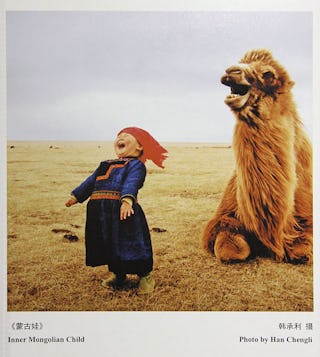A Book of Joy
Oct 07, 2018

Today is Archbishop Desmond Tutu's birthday. I recently read "The Book of Joy" and it seems fitting to jot some thoughts down and personal reflections, in the context of my design practice, on the impact Desmond Tutu and the Dalai Lama have had on me. More than anything, the book served as a timely reminder of what joy is and can be.
Joy is not happiness. I have experienced various bits of joy on all of the projects archived on this website. Not all of them made me happy, though. Joy can be described in so many words as: pleasure, amusement, contentment, excitement, relief, wonder, ecstasy, bliss, exultation, radiant pride, elevation, gratitude, rejoice, delight, enchantment...and so on. Joy is non-attachment, compassion and wisdom all in one bundle. The Dalai Lama and Tutu also say joy is freedom from worry and suffering.
But "nothing beautiful comes without some suffering". Much like we cannot have light without dark, we cannot have joy without suffering. I could argue that the biggest, most beautiful project I have done to date brought on the most suffering. There is an inherent interdependence of that which contributes to being able to experience joy... combined aspects that are contrary to one another but mutually codependent. Similarly, Gordon Wheeler says, "grief is a reminder of the depth of our love". So, with joy comes also various bouts of: loneliness, grief, sadness, despair, fear, stress, anxiety, envy, etc.
As noted in the Book of Joy, anger, attachment and delusion can transform to non-attachment, compassion, and wisdom. How it transforms within each and every one of us depends on how we hold and express our expectations of how life should be as opposed to accepting it for what it is.
Accepting what is and accepting who we are as we are, these are steps towards transforming that typical fear, stress and anxiety that often comes with design projects. Starting with acceptance, we can enter into more fruitful experiences and projects that reflect joy. When I accept that I am doing what I can on any given project and stress less about the nuances of how I am producing, whether or not I will fail, or whether or not I will impress people, I make more room for expressing all the good stuff, instead. For me, just as Dalai Lama and Tutu lay out as the 8 pillars of joy, that joy is accomplished by adjusting my perspective, embracing humor for a given situation, and having the humility to accept whatever happens that is out of our control. "When we have humility, we can laugh at ourselves. The ability to laugh at our own foibles is essential to the cultivation of joy." (p.213) Fortunately, I have a knack for finding the positive in something or find humor and laugh in challenging times. And boy do I have some stories. I've found that finding humor often times opens up opportunities for solving challenging next steps in a project. For me, next up is learning acceptance and forgiveness. Acceptance is "the only place where change can begin" (p.223).
No matter how meaningful, mindful a project was; no matter how many people showed up to interact with it, no matter how great the material installed looked and no matter how well those custom fasteners worked…no project I have ever worked on was "perfect". As I grow my practice, I aim to do better and better projects on so many levels… more human connection, more beauty, more on-time construction, more budget balanced. There is always room for improvement, for by remembering the past, yet not holding onto it, future projects get better and better from embodying the lessons I've learned from past ones. They also get more fun. In order to experience more joy, we must free ourselves from the past. Forgive that project that went sour. Forgive that one that had no contract and never paid you. Forgive the one that went way over budget. That was 10, 15 years ago … or maybe just last month! It's probably archived on this website! Because it's also important to not forget that mistakes = information. Past projects are full of lessons worth remembering and not repeating. As soon as we acknowledge and forgive whatever didn't work out as we expected it to, we make room to be generous and compassionate, we make space to experience more joy in the work we set out to do (and thus are way more fun to work with). Have gratitude for what was learned, experienced, and accomplished. We are fortunate to be alive to do this kind of work in the first place.
P.S.: The book itself is a treasure trove of wisdom and real-world anecdotes written as a collection of conversations between two world-renowned and absolutely ornery spiritual leaders of today - that are able to shed light on serious questions of our human condition one minute, then make complete fun of their traditions and conflicting pieties the next. Highly recommend the read. It may shed some joyful light on your next project, too.